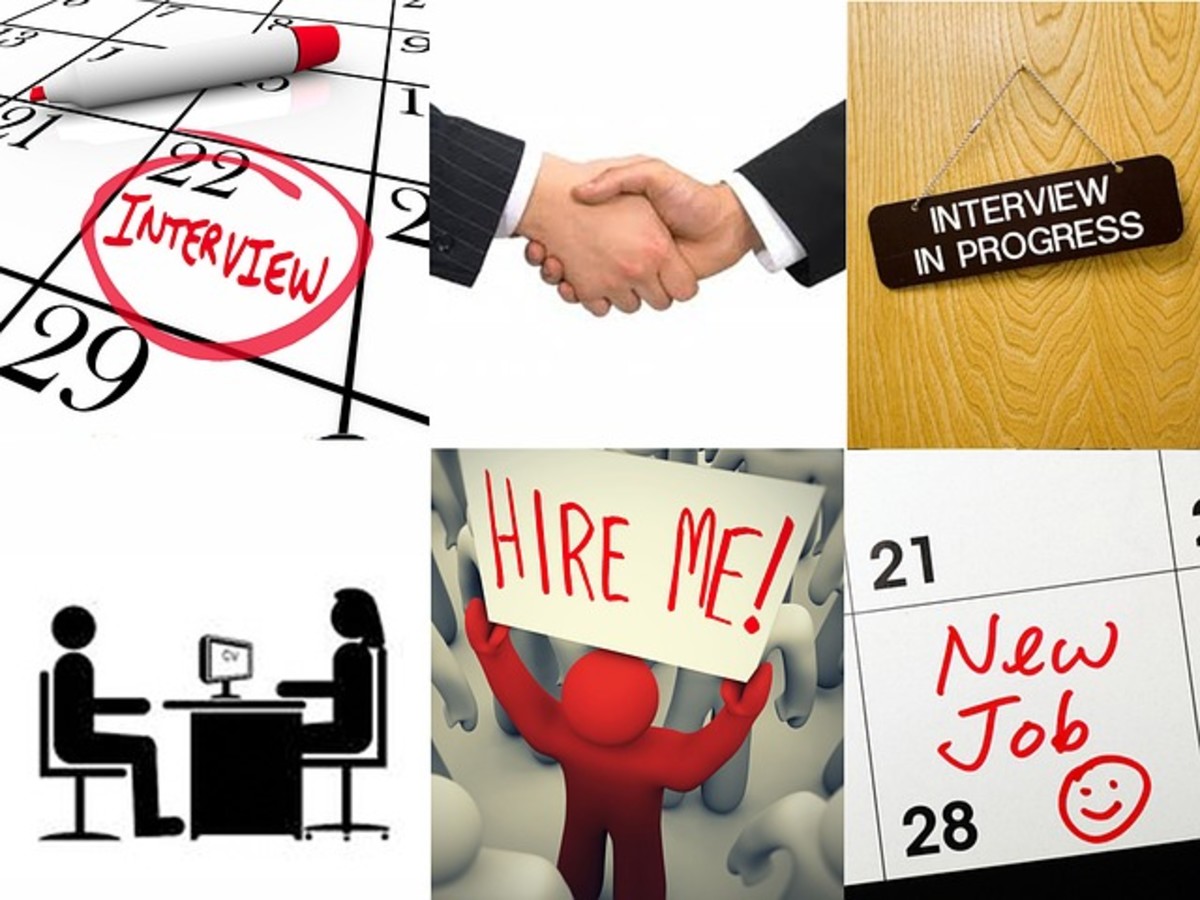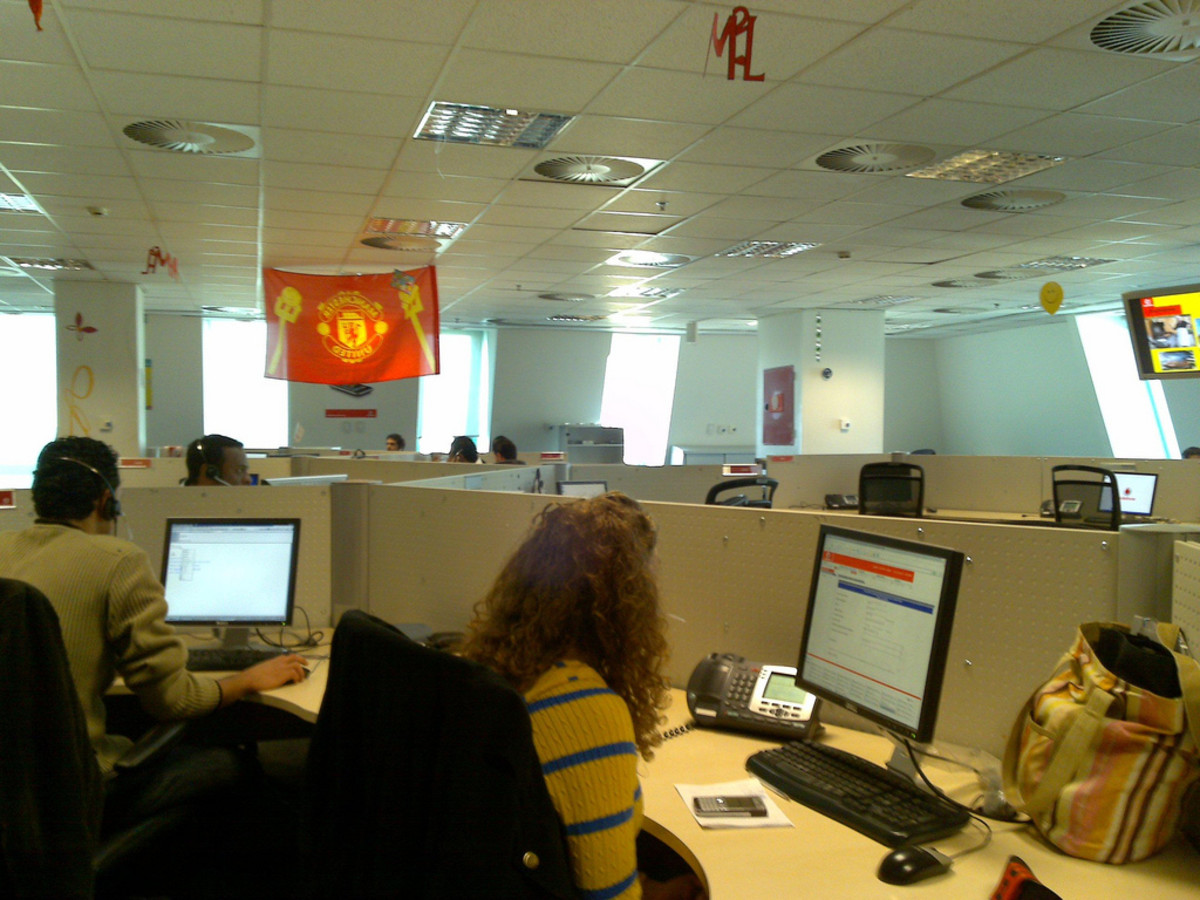- HubPages»
- Business and Employment»
- Employment & Jobs»
- Interviewing for a Job
How You Handle Job Interview Preparation - Types of Common Job Interview Questions and Examples

Preparing yourself and planning for an upcoming interview will be one of the most important things you can do to have a successful interview. Here are some of the types of questions you will be asked during your interview. Now, you can be more prepared, and preparation is everything!
Work History/Project Work/Project Management
"What has been the biggest accomplishment in your career?"
Past work experience questions are geared towards finding out what you are familiar doing, what what you have worked on before, and how you handled those tasks. They also help decide whether you already have experience doing some functions of the position you are applying for.
Behavioral
"Tell me about a time when you had to go above and beyond the call of duty in order to get a job done."
These kind of questions are designed to find out how you might handle certain situations. What you have done in your past often dictates what you will do in future situations, that way, potential employers can be able to anticipate your future behavior.
Interpersonal
"When you have entered a new workplace in the past, describe how you have gone about meeting and developing relationships with your new coworkers and supervisors."
Your interviewer will probably ask you questions regarding how you get along working alongside others. These questions are geared towards finding out how important relationships are to you, and how you maintain those relationships with coworkers.
Questions about the position with the company
"Will you be able to work nights and weekends?"
Questions relating to the position you are applying for are to be expected, so you should go in ready for them. Know as much as you can about the position you are applying for beforehand, and know why you would be the best candidate for that position. The interviewer may ask if you can perform some functions of the job that may be specific to that position, such as lifting a specified weight, or owning a specific license you may require.
Creative Thinking
"Tell me about a time when you used your creativity to perform a task."
An interviewer may ask you about a time when you had to rely on your creativity to solve a problem. They are trying to find out if you can think out of the box to bring fresh new ideas to the table. Sometimes, an interviewer might ask you dumb questions like "If you were a kind of shoe, what kind would you be and why?" These questions are to find out if you can think on the fly to come up with original answers.
Goals
"Where do you see yourself in 10 years?"
Employers want to know what your long term plans for yourself are so that they can get a feel as to where in your life this position would take priority. Ultimately, your goals and this position should be linked somehow.
General
"Tell me about yourself."
"What makes you interested in this position?"
These kind of questions are designed to figure out who your are, and are all questions you can expect on a first interview. Initial questions like these are designed to weed out candidates who would not be good for this position either for reasons based on salary requirements, time expectations, or any other factors that cannot be ignored.
Managerial
"How do you like to be managed?"
Depending on the type of position you are applying for, questions based on your management skills might be relevant. Know what kind of management style you prefer. They may ask if you have ever had a hard time getting along with an employee or manager, or if you have ever had to fire someone or been fired yourself. Managerial questions are geared towards trying to find out what kind of leader you are.
Productivity/Time Management
"How do you stay organized?"
Time management and organization is essential in any job. Do NOT describe yourself as a "list maker" because, odds are, an interviewer will have heard that answer a million times already. Instead, describe how you prioritize your tasks, and what technology you use to stay organized. Also know how you define productivity. Know when you feel productive and what standards you set for yourself.
Quality
"At what point do you feel your work is good enough to be considered completed?"
Questions regarding the quality of work you do might arise during a second, or later interview. They are designed to find out what you consider to be quality work, because being a "perfectionist" can have both pros and cons.
Learning
"What are you doing to further your career goals?"
Are you taking classes for a skill set you do not have yet, or are you volunteering in a role that you wish to expand on one day? Interview questions that inquire about your learning habits tell the interviewer how driven or dedicated you might be.
Teamwork
"Give us example when you were part of a team. What was your role in the teamwork? How did you contribute to this task group? How often did you interact with other team members?"
Getting along with other people is important in any position. Think about past experiences when you have been part of a team, and how you interacted with those team members. Remember, do not describe yourself as a "people person." The interviewer has heard that enough already.
Managing Change
"Tell me about a time when you experienced a major change to your normal work practices. How did you handle it?"
The only thing you can count on in life is change, right? The same goes with jobs. How you handle change is important for an interviewer to know because every job goes through changes, and they will want to know how you might cope with that.
Problem Solving
"How did you handle your most challenging experience in your previous job?"
Know how you handle difficult situations, whether is is involving another person, a specific task that you had to complete, or a personal challenge you had to face. Already knowing how you cope with complex situations and how you handle stress will be beneficial to you when you are asked these kind of questions.
Communication Skills
"Describe the work environment and its communication style where you experience the most success."
Knowing how to communicate effectively with others can make or break a project. Employers want to know how important communication is to you, and how you choose to communicate with others.








